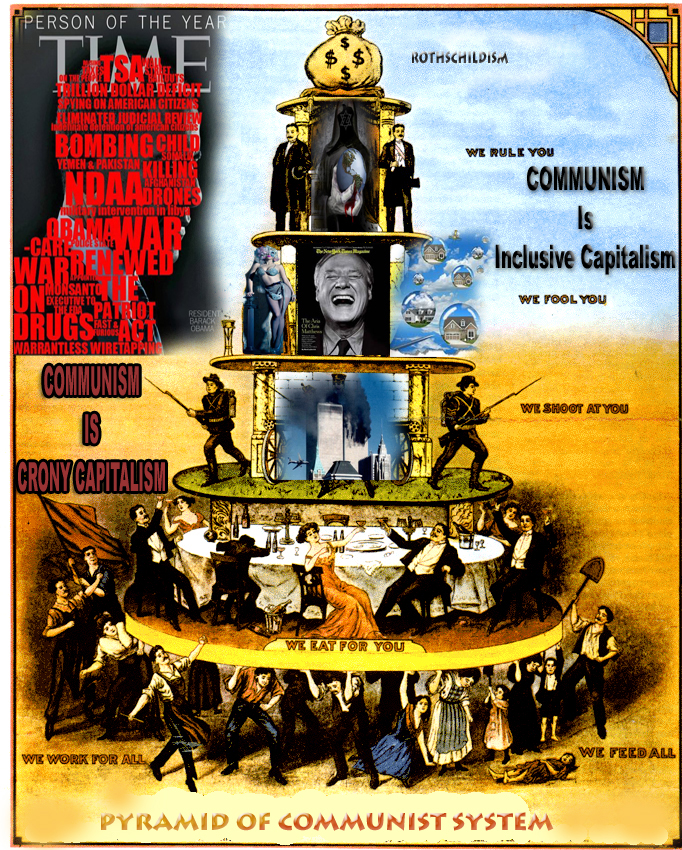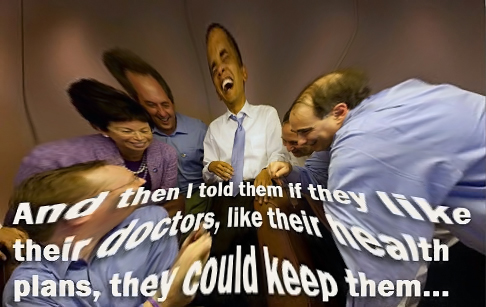 There’s a big — brand new — attack on Medicare that’s just been added in the Senate to the Fast Track bill for the TPP. The bill would cut a whopping $700 million from Medicare, hurting seniors who need access to health care. That’s right, Republicans insisted on cutting Medicare spending to pay for a Trade Adjustment Assistance program that Democrats got added to the bill in order to support workers who lost their jobs due to trade deals like the TPP.
There’s a big — brand new — attack on Medicare that’s just been added in the Senate to the Fast Track bill for the TPP. The bill would cut a whopping $700 million from Medicare, hurting seniors who need access to health care. That’s right, Republicans insisted on cutting Medicare spending to pay for a Trade Adjustment Assistance program that Democrats got added to the bill in order to support workers who lost their jobs due to trade deals like the TPP.
This would be execrable sausage-making for both Democrats and Republicans. For Democrats, Medicare is one of the remaining reasons to think they’re committed to social insurance; and for Republicans, their base — remember “Keep your government hands off my Medicare”? — skews old. So questions are: 1) Has Trade Adjustment Assistance been added to the TPP Fast Track bill? 2) Has $700 million been cut from Medicare as a result? 3) Does Trade Adjustment Assistance serve any public purpose? Has Trade Adjustment Assistance been added to the TPP Fast Track bill? In a word, no. The Trade Adjustment Assistance Act (TAA) and the Trade Promotion Authority (“Fast Track”) are separate pieces of legislation, so when DFA says that TAA has “just been added in the Senate to the Fast Track bill for the TPP,” that’s not correct. Still, that doesn’t mean that a deal wasn’t cut, and that seems to be just what’s happened. National Journal:
The Trade Adjustment Assistance reauthorization bill hasn’t received as much attention as the fast-track trade authority bill, but Democrats see it as a priority: The program helps workers who have been put out of a job because of foreign trade with job-training and placement as well as health-insurance costs. The House and Senate are expected to move the bill in tandem with the fast-track trade measure, said an aide to Democratic Sen. Ron Wyden, who hashed out the trade deal with Sen. Orrin Hatch and Rep. Paul Ryan, both Republicans. And the bills indeed moved in tandem; the Senate voted for closure of both Fast Track and TAA last Thursday, May 14.
Has $700 million been cut from Medicare as a result? Because that’s a lot of money, even today. In a word, yes. Modern Health Care: The Trade Adjustment Assistance Act, sponsored by Rep. David Reichert (R-Wash.), would rely on $700 million in reduced Medicare spending in 2024 to pay for [sic] healthcare coverage and other benefits for workers who lose coverage because of any agreements negotiated under fast-track trade authority sought by President Barack Obama. The $700 million in savings would be achieved by increasing Medicare cuts that were part of the sequester by 0.25% in 2024.
“Apparently using Medicare as a piggy bank to pay for [sic] everything under the sun has become the new legislative norm for Congress,” Max Richtman, president and CEO of the National Committee to Preserve Social Security and Medicare, said in a statement to National Journal. “Rather than balancing priorities or considering a penny of new revenue, congressional leaders are proposing to once again funnel Medicare resources into unrelated programs and fixes—this time it’s the trade adjustment assistance program.”
The full House and Senate have not yet approved the bills, but it suggests that lawmakers are getting increasingly comfortable with using future Medicare sequestration to fund Medicare and non-Medicare programs.
So, Congress is preparing to loot Medicare not just for this one program, TAA, but as standard operating procedure. I think that qualifies as “throwing Medicare under the bus.”
Does Trade Adjustment Assistance serve any public purpose? Senator Sherrod Brown — who’s done good work on TPP — describes the four-decade-old TAA as follows on his site:
Administered by the U.S. Department of Labor (DOL), TAA is a federal program that identifies workers who lose their jobs or have their hours or wages reduced as a result of increased imports, and helps them prepare for new careers. The program extends benefits including training for employment in another job or career, income support, job search allowances, and relocation allowances. Qualified workers may quickly return to work through a combination of these services. DOL estimates that since 1975, two million workers nationwide have relied on TAA to make ends meet and receive training necessary to find a new job. Brown released a county-by-county list of Ohio companies affected by foreign trade whose workers used TAA benefits to help train for new jobs.
And reading on, Brown lists a ton of reasonable seeming tweaks and enhancements. Reading through the list, though, I’ve got to say I’m both ticked off and skeptical: Ticked off, because how come the millions who got kicked out of the labor force when the powers-that-be decided to downsize it aren’t eligible for the same treatment? For example, it sounds like the Health Care Tax Credit workers screwed over by trade deals get is a better deal (at least in terms of dollars, even though it’s a tax credit) than COBRA, which is what workers screwed over by recessions and depressions get. What a horrible patchwork. And skeptical, because in today’s post-crash and crapified labor market, is training really the answer? Especially for over-50s? So I’m not convinced that TPP + TAA nets out positive for workers, or even makes them whole. Wikipedia has a summary of program effects with reasonable sources; one of them is a study done by Kara M. Reynolds and John S. Palatucci of American University:
Reynolds and Palatucci compared the employment and salary trajectories of TAA beneficiaries with those of workers laid off in similar circumstances who weren’t eligible for the program. In 2007, approximately 150,000 Americans received a total of $850 million of TAA aid in the form of income support, health insurance, job search assistance, relocation compensation, and retraining. The 2009 stimulus expanded the program’s roster and benefits. After controlling for geography and other factors, the authors found that TAA beneficiaries fared no better at getting new jobs than those who didn’t participate in the program. Furthermore, the TAA beneficiaries who did find jobs earned roughly 30 percent less than they did in their previous positions, while the other workers typically earned 18 percent less. (This disparity owes much to the fact that the TAA program targets workers who are most in need of help.) There is a silver lining: Workers who participated in the voluntary training component of the program increased their likelihood of finding a job by 10 to 12 percentage points over those who did not. Their wages were also higher than those of beneficiaries who didn’t undergo training. Even these brighter numbers, however, did not make the TAA cohort more successful than the other group.
Oh well. That’s not a very good result for a program that’s been around for 40 years, eh? Bottom line is that TAA is a bandaid on a cancer, and the Democrats — assuming good faith, which I think with Sherrod Brown it’s fair to do — traded away something for nothing, as so often. If corporations can go to a rigged court and sue for lost profits, how come workers can’t go to a rigged court and sue for lost wages?

Summary
TPP is a bad bill, made worse — by stealing money from sick old people to pay for it.
Is there anything more I can do to oppose the TPP? Why, yes! Besides drawing attention to another rotten policy outcome from bipartisanship, I wanted to write this post to introduce one more method of bringing pressure to bear on your congress critters — besides letters to the editor, letters to your congress critter, faxes, phonecalls, and email to your congresscritter, as well as signing petitions and so forth — and that’s putting together a group delegation to visit their office in your district. The difficulty of the method chosen correlates to its effectiveness, which is why a personal, physical letter ranks high, and clicking an online petition ranks low. Getting a group together, and travel, are both reasonably difficult, and so the group delegation ranks high. Make a reservation beforehand, and I think you’ll be surprised at how well the staffers receive you. I would recommend that the group span the political spectrum, left and right, making it much harder for political operatives to dismiss you as crazies. Arguments against TPP that I think left and right share: 1) The ISDS system is a surrender of national sovereignty to transnational tribunals; 2) Fast Track is a surrender of legislative authority to the executive; 3) The American people should be able to read the complete text of the bill immediately. And of course, the point of this post: I don’t think left or right wants Medicare cut. Outside of the political class, that is. I know that left and right have a boatload of issues they do not agree on, but how about we put those aside for now, and then duke it out when we’ve stopped TPP? Personally, I’d never carry a “Don’t Tread on Me” banner, but there’s no denying those banners were there when the latest landfill was stopped, and the East-West Corridor put on hold, hopefully permanently, and I’m thankful for that.
Also, after your visit, follow though with a letter to the editor — or, if you’re really wired, an Op-Ed in your local paper — describing the position your Congress critter took, for good or ill. That will let them know they’re being watched, and letters to the editor are high impact, again because of degree of difficulty; op-eds even more so. Regardless of the outcome, I urge that forms of civic engagement like this are valuable in and of themselves. Think of putting together your delegation as exercising your democratic muscles. Because we need that strength, and will need more of it. Naked Capitalism

Related Articles:
- OBAMA’S APPROACHING SECRET CORPORATE FASCIST COUP: THE ILLEGAL TPP TREATY: SCOTUS NOR THE OFFICE OF PRESIDENT HAVE “STANDING” AGAINST THE TENTH AMENDMENT & THE BILL OF RIGHTS.
- CHINA SET TO LOSE OUT TO VIETNAM AS OBAMA’S DEADLY NON-TRANSPARENT TPP DEAL LOOMS: TPP ISN’T REALLY A TRADE AGREEMENT ~ IT’S A ROTHSCHILD INTERNATIONAL CORPORATE COUP!!



